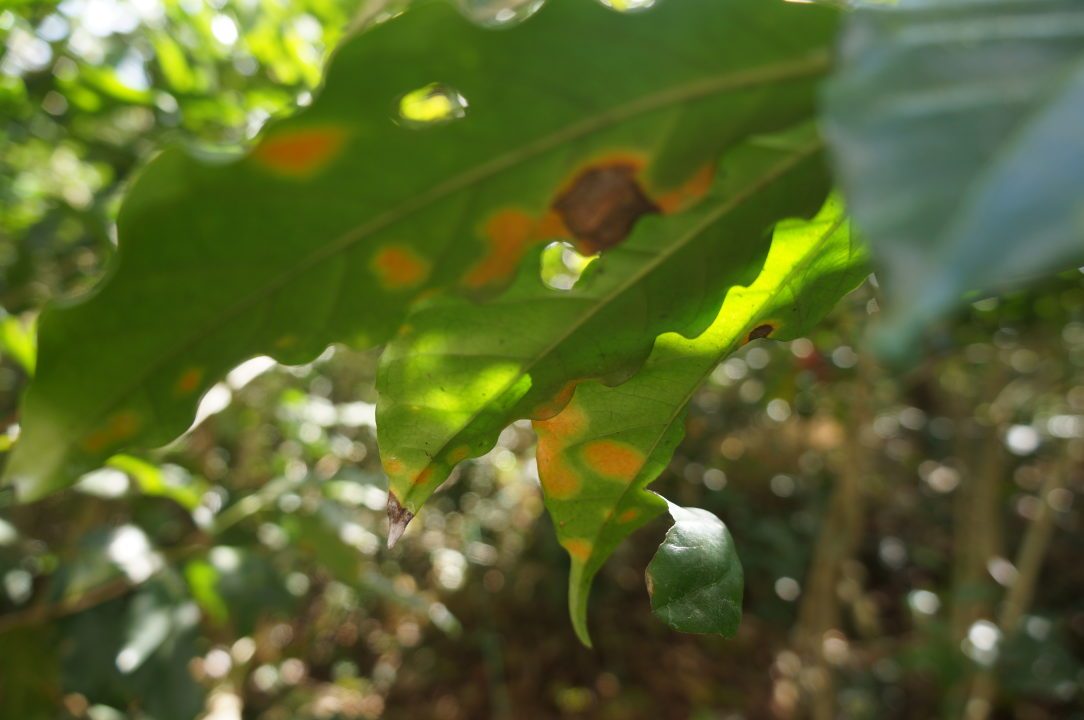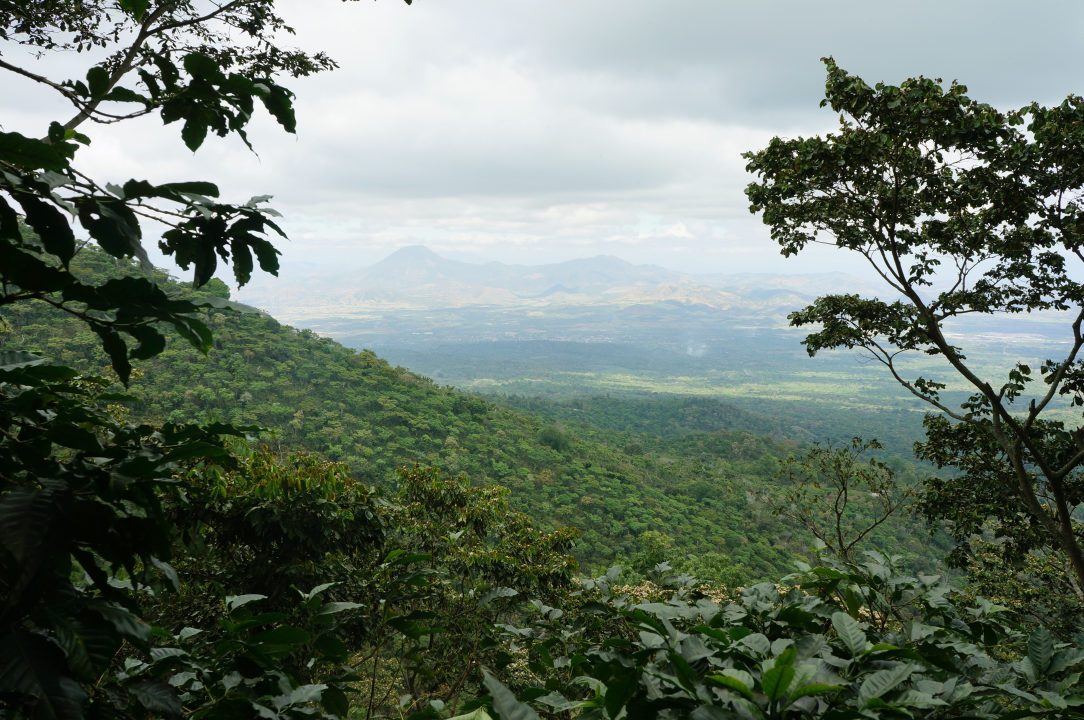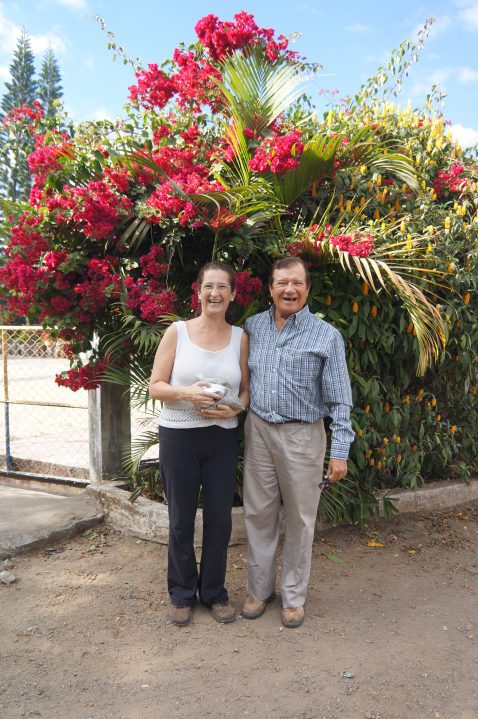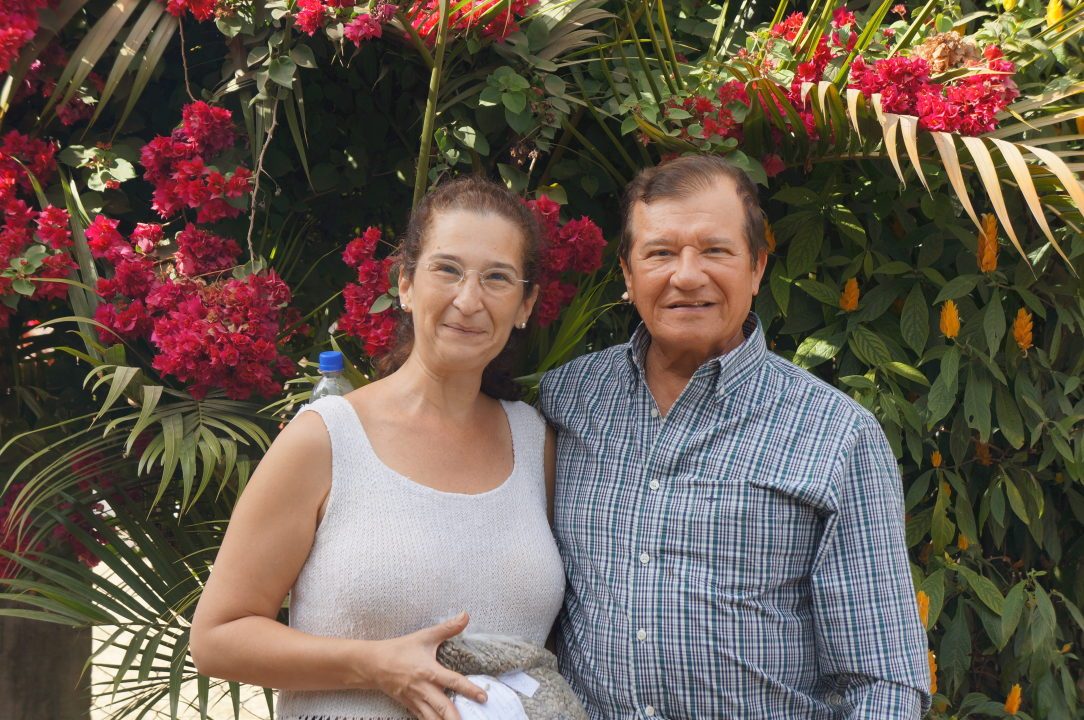During 11 long days in November 2011, more rain fell on the Bourbon Jungle coffee farm than usually falls in an entire year. Not even the Salazar family could have predicted the terrible crops that would follow in the wake of the rainfall. We spoke to father and daughter, Mariano and Nena Salazar, about the challenges of growing organic coffee at home in El Salvador
First, a brief look back. Ten years ago, we bought our first batch from the El Condor coffee farm in El Salvador. It was during a visit to the farm that the words "it's like walking in a Bourbon Jungle" were uttered by a Solberg & Hansen representative overwhelmed by the lush Bourbon trees on the farm. Since then, Bourboun Jungle has gone on to become one of our most popular coffees, and a prime example of how close and long-term relationships with coffee farms can bear fruit for all involved. In 2014, Mariano and Nena Salazar's entire crop was just under two bags, equivalent to just over 100 kilos of coffee. It goes without saying that this is a crisis for a farm from which we usually buy more than 200 bags (over 10 tons) of coffee.
Ribbed for leaves
How can the yields of a well-run coffee farm decline so dramatically in just a few years?
The rainy season here in El Salvador runs from May to October every year. In November 2011, however, there was an unexpected downpour that was supposed to last 11 days straight. During this short period, it actually rained more than it usually does in a whole year - and this was after the expected rainy season. The rainfall gave the plant disease "leaf rust" good growing conditions, which in turn stripped the coffee trees of their leaves. This of course weakened the trees which, combined with all the excess moisture, made it easy for fungi and bacteria to attack the roots.
Could this have been avoided if you didn't grow organically?
Organic farming requires more work and follow-up in the face of plant diseases, fungi and bacteria. We do not use artificial fertilizers or chemical pesticides against weeds, fungi and bacteria. This means that we have to attack weeds manually, and to combat fungi we can only use copper, sulphate and lime. The problem with these products is that they only work by application, which means they need to be used regularly.

What are you doing to address these challenges?
To combat fungi, we need to work methodically to identify where the trees have been most heavily infested. Therefore, we have divided Borboun Jungle into separate areas with associated lots. In this way, we can examine the development of leaf rust and other diseases at fixed time intervals, and experiment with different applications of copper, sulphate and lime in the separate areas. This can give us an indication of which measures are most effective and at what point in time they work best. We have also worked purposefully to plant shade trees and pruned areas of the farm where there was too much shade. To create natural ventilation channels between the trees, we have also pruned branches on coffee trees that invade the ones next to them. The toughest battle, however, has been to convince the bank to continue financing. According to them, it is virtually impossible to run an organic coffee farm at a profit. "Three years after the rains, we have finally got the plant diseases under control, and we expect production levels to be close to normal by 2015.
"In this way, we can investigate the development of leaf rust and other diseases in fixed time intervals, as well as experiment with different applications of copper, sulphate and lime on the separated areas."
Nena Salazar

Biological diversity
With all the pitfalls in mind, why do you choose to grow organically?
First and foremost, because we believe it is our responsibility as a landowner to respect our surroundings. This includes a responsibility to preserve and contribute to a healthy and sustainable environment. One that stimulates biodiversity and helps plant and animal life to exist in harmony with us humans. That's why it's out of the question for us to apply chemicals to the soil that harm plants and animals. Because we don't use herbicides, the soil surface retains its natural protective layer, reducing the extent of erosion damage. The trees we have planted to shade the coffee plants have become home to a wide range of insect and bird species, as well as mammals, reptiles and fungi that are beneficial to the environment. We observe that the range of animals living in the area is increasing - including deer, squirrels, raccoons and a wide variety of bird species.
What are your thoughts on the future of coffee growing - for your own part, in El Salvador and in producer countries in general?
We believe it is important to distinguish between coffee cultivation and organic coffee cultivation. As far as our farms are concerned, we hope that it will be possible to grow 100% organic coffee. However, in El Salvador, there is less and less support for organic coffee cultivation, and we can imagine that the trend is the same in other producing countries. Our assumption is that the use of organic methods has stagnated, if not already started to decline. Here in El Salvador, everyday life is characterized by uncertainty, both related to political issues and crime. We struggle with violent gangs, called "maras", which at times make it dangerous to visit our own farms. When it comes to coffee cultivation in general, the outlook is more positive. Every year, global coffee consumption increases by around 2%, which means we can expect reasonable prices for our product. We are also pleased that we have succeeded in turning around the situation at Borboun Jungle, with a large proportion of healthy coffee trees that will produce a solid crop next year.
The future is green

Based on our long partnership, and Salazar's dedication to coffee quality and sustainability, we wanted to contribute in a way that would help the family to continue operating. Therefore, we chose to buy coffee from their second farm, La Lima, at the same price as in previous years. This has helped give the family the time and resources to implement the measures they describe in the interview above. After three years of hard work, the coffee farm is finally lush and green, and the family reports a promising outlook for future crops. This illustrates how close relationships with coffee farms, as well as the ability to take human considerations into account in the coffee trade, can be sustainable and benefit all parts of the value chain in the long term. Hopefully, this year's Bourbon Jungle La Lima will stand as a symbol of longevity and sustainability when we celebrate 20 years of collaboration in 2024.
